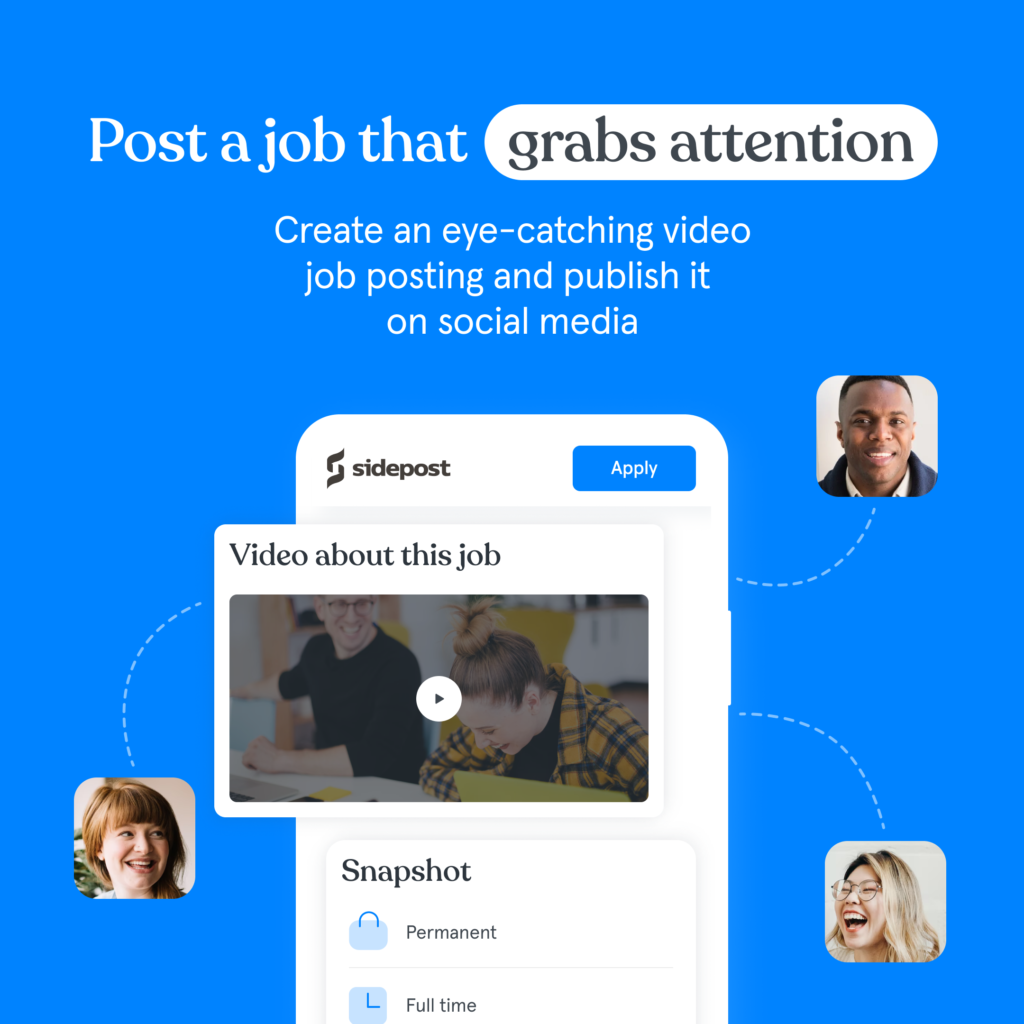
Nine biggest reasons that lead to high employee turnover
There are numerous reasons for employee turnover, and why someone might want to leave their current job. It could be a lack of pay. It could be a lack of respect. A lack of good benefits. Poor corporate culture. Have you considered the lack of developmental opportunities? It’s a genuine reason why some leave to work for a competitor.
“Employees look for more than just a good salary when deciding to accept a new job or to stay in one.” Salary might be one of the biggest reasons why employees leave their jobs, but it’s far from the only one. And one of the fastest ways to destroy a business is by driving employees to quit. Especially the best and most knowledgeable ones.
There are many reasons why your employees might be looking to leave your company right now. So let’s take a look at 9 of the biggest reasons that lead to high employee turnover.
Key Takeaways
- A balanced salary and benefits package are necessary to attract and keep the best employees; and one that incorporates a proper work-life balance.
- It’s essential to have good communication with your employees, properly reward them for their efforts, and promote them when appropriate.
- Don’t forget to provide ongoing educational development. There are several compelling reasons to do so.
1. Low Pay
One of the most significant and fundamental ways that we show our employees how much we value them is through salary. This literally begins before they even apply for the job. The potential employee looks at the job posting. They run through all the requirements and then the job duties. They might even do some research to make sure that what the employer is asking for is commensurate with the salary range being offered. Once an offer is made, the prospective employee must decide if the salary is in line with what they believe is fair.
So, if you want to make sure your employees feel valued, it starts with a fair wage. And connected to a fair wage is a good benefits package, which is the next item on our list.
2. Weak Benefits Package
Unfortunately, in the United States there are few rules guaranteeing things like vacation time, sick time, and maternal and paternal pay. In some parts of the country, though, these things are starting to get more attention, especially in newer companies that are trying to consider things like work-life balance and employee motivation. Not to mention employee burnout. Don’t do the minimum because chances are, your competitors aren’t. Assume your prospective employees are comparing packages and considering the salary at the same time.
3. Poor Work-Life Balance
Speaking of “work-life balance”, it’s number 3 on our list. An employer may think they’re doing their employees a big favor by not just hiring them, but also giving them a competitive salary. They may also include a benefits package with three or four weeks of vacation pay and other generous perks. But if this generously paying employer makes a habit of calling these employees after hours, or worse, on vacation, this can lead to some very ill feelings towards the employer.
Some employers seem to feel like their employees owe them everything because of a high salary and a spectacular benefits package. But when you as an employer creep into their private time with their spouses and children, expect them to become resentful. Expect them to consider going back to a lower paying job with another company that puts a lot more value on work-life balance.
There must be boundaries. Remember, you may not have a significant other or any children, but I bet some of your employees do. They want to get home to them, and they don’t want to be constantly interrupted while they’re spending time with them. As for your single employees, don’t assume because they’re single they don’t have a life outside of work. They may have a very active social life.
4. Feeling Overworked
Speaking of work-life balance, how about being overworked? Now, I don’t think I’ve ever held a position where I felt like I was being overworked, but this is a real issue.
One thing that some employers do to get around overtime pay, or to avoid hiring more employees, they put their employees on salary. By doing this, an employer can avoid paying the usual time and a half overtime pay. Some employers might instead give extra vacation time for the extra hours worked. But this could be perceived by some as a cheap and miserly attempt to make up for lost pay if the employee was hourly.
In some companies, vacation time could expire after a year. Imagine an overworked employee who never got compensated for doing an extra 10-20 hours a week, and then never got a chance to use all the vacation time they accrued. That might make for some very resentful employees.
For many of us, especially with a spouse and children at home, this would not be sustainable and could easily lead to high employee turnover.
5. Promotion and Advancement Issues
There are many people who, believe it or not, leave their best paying jobs because of a lack of advancement and promotion opportunities. There are many ways this issue could plague your company.
While you might believe that your company loves to promote from within, and advertises so, it might often come with a catch. That catch might be that the most qualified and experienced aren’t getting those promotions. They might be handed out to those who know best how to play office politics. Or those who simply ingratiate themselves with the boss.
Make sure those who are most qualified for promotions get them, otherwise they’ll be looking elsewhere for a new job.
6. Underappreciated
Somewhat related to a lack of advancement issues is being underappreciated. Employers might show their appreciation towards their employees by promoting them or giving them awards for their significant accomplishments. You must find ways to do this. One poignant and impactful way to show appreciation towards employees is with positive comments and feedback. Check-ins are an excellent time to do this.
7. No Check-ins
This may seem like an odd one, and maybe some of you reading this right now may not have a really specific idea of what I mean when I say “No check-ins”, but it’s a key part of being a successful manager.
Check-ins should be part of your regular one-on-ones with your direct reports. Wait! You aren’t doing regular one-on-ones with your staff? Then how do you know what issues they’re having? How do you know what their career goals are? Occasional emails? Do you expect them to blurt them out in team meetings? No, no, no.
Every manager should be having regular check-ins with their employees in the form of one-on-ones. Since this is not about one-on-ones, you’ll have to wait on that for a future blog. But for now let me just say that you must be meeting with your employees on a very regular basis—weekly for 30 minutes would be ideal—to go over various things including developmental opportunities, ongoing projects, workplace culture issues, and whatever else you can fit into the 30 minutes.
Without these regular check-ins, your employees might not feel they have the opportunity to express and discuss the multitude of issues they might be having. These issues may go unresolved, leaving them feeling helpless and wanting to quit. Implementing proper one-on-ones should help avoid employee turnover.
8. No Developmental Opportunities
In the last example, I mentioned “developmental opportunities”. Is this a surprise to you? Well, I would venture to say that developmental opportunities are almost always essential.
Employees often need training to further develop their skills. We can’t always find the perfect fit for a specific role in our company, but we can find a close fit. So we should plan to train our employees for the skills necessary to do their jobs in the most effective way possible. Or, for example, to learn the newest technologies in their field so that they can keep the company moving forward.
Another very essential reason to develop your employees is to keep up with the newest government regulations. Make sure you know what changes are happening in your industry, and make sure your employees are prepared. If you don’t prepare them for those changes, they’ll see management as incompetent. Who wants to work for a company with incompetent management?
9. Poor Corporate Culture
When a company’s culture is unknown to employees, or simply not followed, it can lead to a lot of negative repercussions, like a toxic work environment. When a company’s culture is clearly known to employees, and they live it every day, they’re much happier and customers see it.
You should see high levels of employee engagement and employee motivation when a meaningful and purposeful corporate culture is established and followed passionately. Engagement is what keeps employees committed and makes them feel a part of the team, while motivation keeps them going.
Have you ever been to Trader Joe’s? Not only do many customers love Trader Joe’s, the employees working there love it too. I’ve heard writers refer to Trader Joe’s as having a “cult following”. Besides the many unique food offerings that they have in every store, they have a lot of unique and valuable policies as well. I could easily do an entire blog post on them.
One of the policies is allowing customers to try new foods. Not samples handed out to everyone at the sample table. You can ask an employee if you could try some new chips they just got in; right off the shelf. They probably won’t say no. They’ll likely open the bag and give you some right then and there, and happily so. This is part of their corporate culture that has customers driving hours away to the nearest store.
Does your company have the “cult following” that Trader Joe’s has? Maybe you need to look at your corporate culture.
The Bottom Line
While you might be thinking that you’re doing everything correctly because you offer high salaries or excellent benefits packages, there are a lot of other things to consider to keep quality employees. Don’t ignore these nine reasons good employees leave. Just lacking in one of them could lead to higher employee turnover.
Post a Job That Hires The Best Talent
- Want to stand out as an employer?
- Want to persuade and attract hot young top talent?
- Want to tell a compelling story about your job?
- Want to add video, photos and voice to your job posts?
If your answer to any of these questions is YES, try SidePost
Use SidePost as an online job description builder and talent marketing platform for your jobs
No more boring PDF, DOC or WORD files for your job descriptions anymore. Just use SidePost and share a link.
Create a beautiful job description online on SidePost, generate a link for your job and share it with candidates via email or social media. Save time, go viral and hire quickly.




